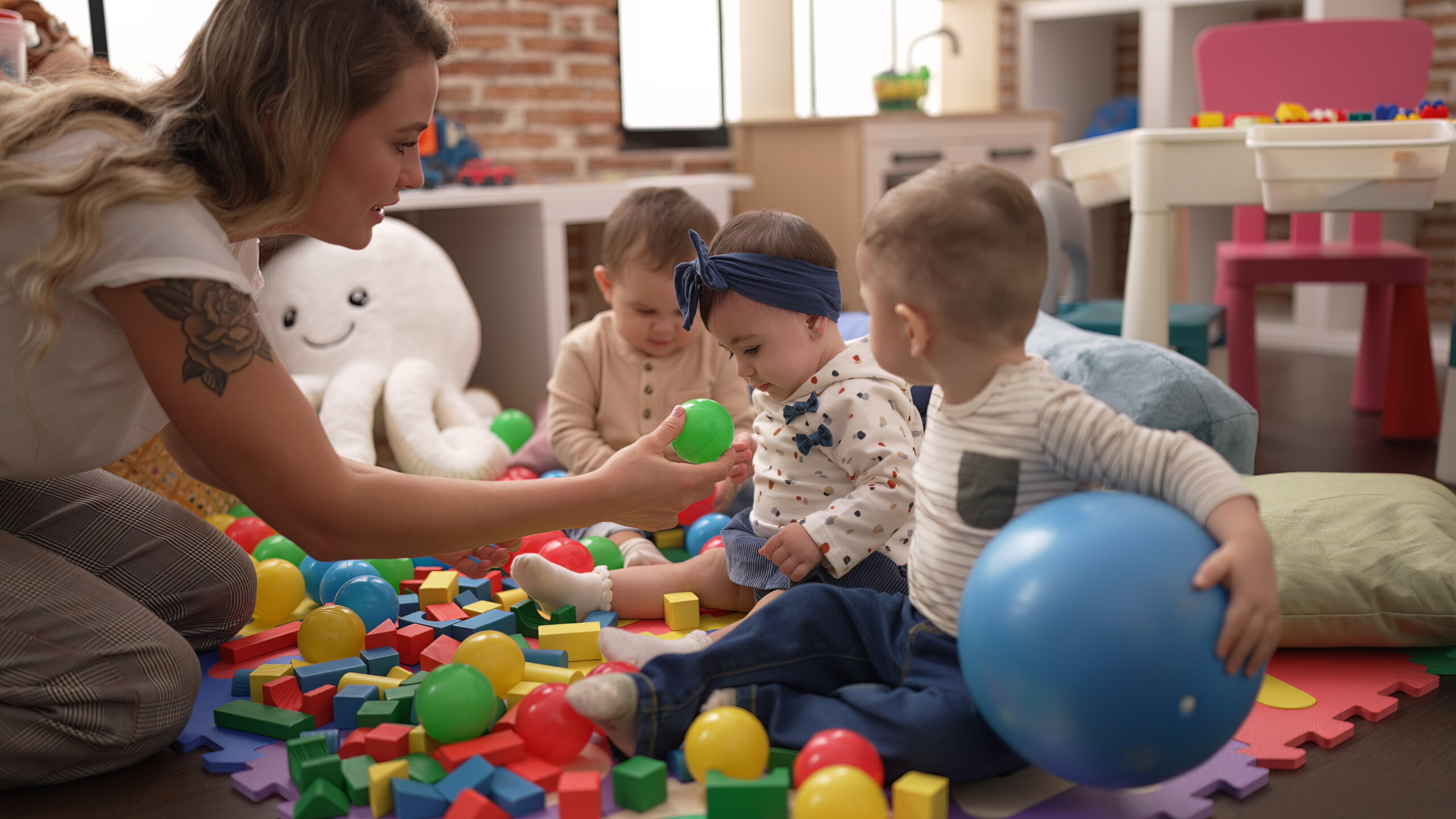The Role of Babysitters in Early Child Care and Development: What Parents Should Know
Understanding the Importance of Babysitters in a Child’s Early Years

When it comes to raising children, every decision a parent makes can have long-lasting impacts. One of the most critical decisions is choosing the right babysitter to support early child care and development. A reliable babysitter does more than just supervise; they contribute to shaping a child’s cognitive, emotional, and social well-being. In today’s fast-paced world, where many parents juggle careers and household responsibilities, babysitters often step in as important caregivers during the child’s formative years.
Early child care and development lays the foundation for a lifetime of learning, behavior, and health. Children absorb information rapidly during their early years, and consistent, positive interaction plays a crucial role in how they grow. A skilled babysitter not only ensures safety but also engages with the child in ways that support their development, forming a valuable extension of parental care.
The Multifaceted Role of Babysitters
Emotional Support and Attachment
Babysitters can become significant emotional figures in a child’s life. Through nurturing behavior and a warm presence, a babysitter helps build trust and security. This emotional bonding is crucial during the early stages of child care and development, especially when the child is learning to identify emotions, cope with stress, and develop relationships.
Consistency is key to forming secure attachments. When a babysitter spends regular and meaningful time with a child, they help establish a sense of routine and emotional stability. This presence can ease transitions, reduce anxiety, and help the child adapt to change in a safe and comfortable manner.
Cognitive Engagement
Early brain development depends significantly on stimulation and interaction. A skilled babysitter engages the child through age-appropriate games, storytelling, puzzles, and learning exercises that stimulate thought and creativity. These activities aren’t just for entertainment; they build attention spans, memory, language skills, and problem-solving abilities.
Reading together, talking during playtime, and introducing educational toys are all excellent ways babysitters can contribute to child care and development. With the right guidance and environment, children grow curious, confident, and ready for the next stages of their learning journey.
Physical Development
Children need to move. Physical activity improves motor skills, coordination, and overall health. Babysitters should encourage and supervise play that involves running, jumping, climbing, and dancing. Simple games like tag, hide-and-seek, or ball tossing help build gross motor skills, while tasks like stacking blocks or drawing refine fine motor control.
Proper nutrition and hygiene are also part of physical development. A responsible babysitter ensures that meals are nutritious, snacks are healthy, and hygiene routines like handwashing and tooth brushing are followed consistently.
How Babysitters Influence Social Development
Social development in early childhood involves learning how to communicate, share, and empathize with others. Babysitters often play a key role in guiding children through these learning experiences, especially when interacting with siblings or other children.
By modeling respectful communication, teaching manners, and guiding conflict resolution, a babysitter becomes a role model. Children begin to understand social cues, practice kindness, and develop patience through these early interactions.
In structured playdates or community activities, a babysitter may also introduce the child to group environments, helping them learn cooperation, listening skills, and teamwork. These experiences shape their readiness for preschool and group settings later on.
Supporting Routine and Discipline
One of the most valuable contributions a babysitter can make is maintaining structure and discipline in the child’s daily routine. Children thrive when they know what to expect. Predictable routines provide a sense of control and reduce anxiety, helping the child feel secure.
Babysitters enforce house rules and parental expectations, from screen time limits to bedtime routines. Using positive reinforcement and consistent consequences, they help shape behavior in a constructive way. When a babysitter maintains the same standards as the parents, it sends clear messages and supports the child’s understanding of acceptable behavior.
Encouraging Independence
While young children require a great deal of supervision, fostering independence is a vital part of child care and development. Babysitters can help children gain confidence in doing simple tasks on their own—like dressing, feeding, tidying up, or choosing their clothes.
These little milestones in independence empower children, promoting problem-solving and decision-making skills. A thoughtful babysitter will balance helping with allowing the child to attempt and learn on their own, celebrating small victories to build self-esteem.
Communication Between Parents and Babysitters
For babysitting arrangements to be successful, open communication between parents and babysitters is essential. Regular updates on the child’s behavior, eating habits, mood, and milestones help parents stay informed and involved.
A babysitter who takes notes, shares highlights from the day, and is open to feedback becomes a trusted partner in the child’s care. This collaborative approach ensures consistency in expectations and supports the child’s development from multiple angles.
Parents should also share information about the child’s personality, preferences, routines, and any specific needs. The more a babysitter knows, the better they can personalize their care.
Qualities of a Great Babysitter
Patience and Compassion
Children can be unpredictable, emotional, and challenging. A good babysitter remains calm under pressure, responds to tantrums with empathy, and shows genuine concern for the child’s feelings.
Reliability and Responsibility
Punctuality, attentiveness, and the ability to handle emergencies responsibly are non-negotiable traits. Babysitters should be trustworthy and demonstrate maturity in all situations.
Creativity and Energy
Engaging children requires both imagination and stamina. Babysitters should be full of ideas, from crafts and storytelling to outdoor adventures and learning games.
Knowledge of Safety and First Aid
Safety is always the top priority. Babysitters should understand age-appropriate safety protocols and ideally have first aid and CPR training to handle accidents or emergencies confidently.
Choosing the Right Babysitter
Screening and Background Checks
When selecting someone to care for your child, safety and integrity come first. Always conduct interviews, check references, and perform background checks. Many families also look for babysitters with certifications in early childhood education or safety training.
Trial Periods
Before committing to a long-term arrangement, consider scheduling a few trial visits. These allow both the child and babysitter to become familiar with each other while giving parents a chance to observe the interaction and gauge compatibility.
Trust Your Instincts
Parental instincts are powerful. If something feels off—even if everything looks good on paper—it’s okay to keep looking. Your comfort and peace of mind matter, especially when entrusting someone with your child’s well-being.
Babysitting vs. Daycare: Understanding the Differences
While daycare centers provide structured group environments, babysitters offer one-on-one attention in a home setting. This personalized care can be especially beneficial for infants and toddlers, who need secure attachments and focused attention.
Babysitters can also adapt more flexibly to family routines, values, and specific developmental goals. However, socialization opportunities may be more limited compared to daycare unless the babysitter organizes playdates or attends community activities.
Ultimately, both options can support child care and development; the best choice depends on the child’s needs and the family’s circumstances.
Cultural and Emotional Sensitivity
Children are deeply influenced by their environments, including cultural norms, values, and emotional expressions. A thoughtful babysitter respects family traditions, language preferences, dietary restrictions, and emotional expectations.
By aligning with the family’s values, babysitters provide consistency and reinforce a child’s sense of identity. For multicultural families, this sensitivity becomes even more important in helping children navigate their heritage and feel secure in their identity.
Babysitters as Lifelong Influencers
Many adults remember a favorite babysitter who made them feel special, safe, or inspired. These memories are a testament to the powerful role that babysitters can play. A positive babysitter-child relationship can create lasting impressions that influence attitudes, confidence, and emotional resilience well into adulthood.
The role of a babysitter is not just temporary assistance—it’s a meaningful relationship that helps shape the architecture of a child’s early world.
Final Thoughts
In today’s dynamic family environments, babysitters are more than just a helping hand—they are partners in parenting. Their influence on child care and development goes beyond supervision, touching every aspect of a child’s growth. From emotional bonding and cognitive stimulation to social skills and daily routines, a skilled babysitter is a valuable presence in a child’s early life.
Parents seeking a babysitter should not underestimate the impact this choice can have. Investing time in selecting the right caregiver, maintaining open communication, and creating a supportive environment will ensure that the child benefits from consistent, nurturing care.
The early years are a window of incredible opportunity. With the right babysitter by your side, you can give your child the tools and experiences that will help them grow into happy, healthy, and confident individuals.




